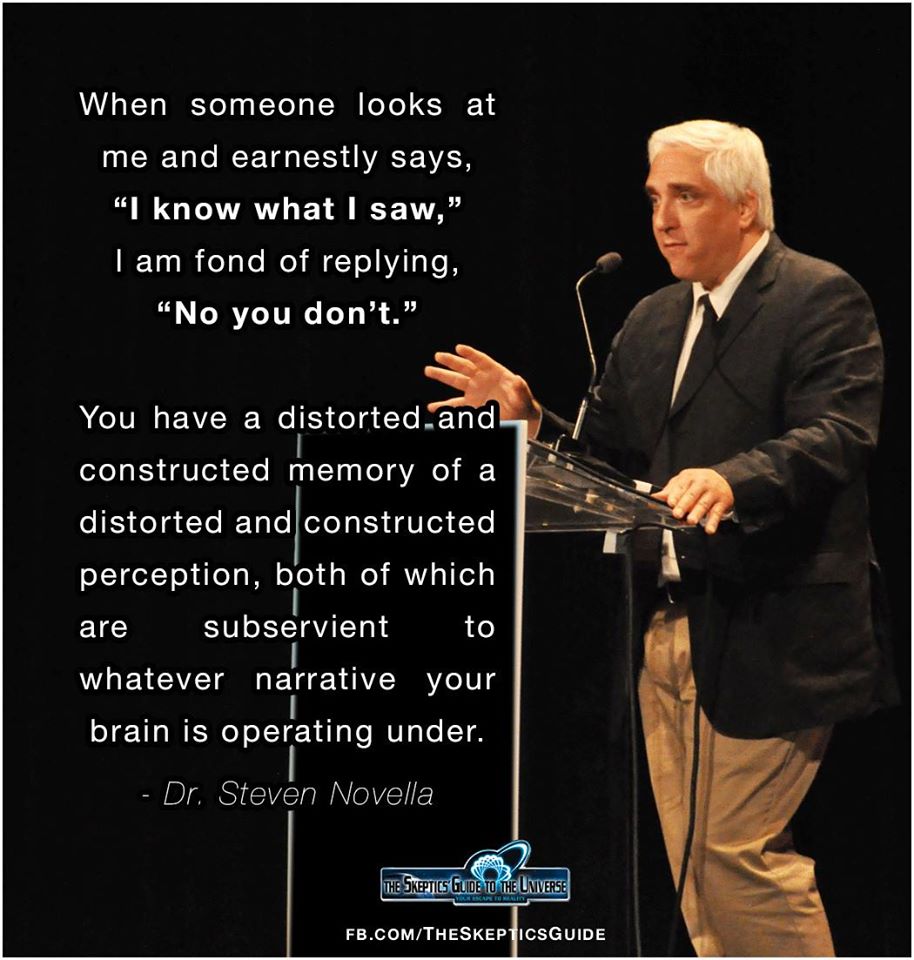Usually when we teach the ins and outs of memory formation to students, we tend to use the old standard model of "encode, store, and retrieve" to explain memory processes. In other words, sensory input gets encoded by the brain into useable information, that information goes through the short term memory (STM) and the hippocampus (and amygdala), and eventually shuttled off to long term memory (LTM), from which we can later retrieve it.
Usually, I just tell the students that it goes from your senses to your short term memory and then through some sort of "brain magic" it gets turned into long term memory somewhere, out there, in the cortex...and then just hope that nobody asks any questions. How does the brain do this? Hell if I know. "Brain magic" seems as good an answer as any. And, really, nobody else knows, either.
Until now, it seems. And, what we thought we knew about memory might have been wrong this entire time.
The finding that the brain seems to make two different types of memories simultaneously is incredibly eye-opening, and makes a lot more sense than the model of memory we've been working under for decades.
Anyway, this finding still needs to be replicated before anything definitive can be said but its implications are vast.
As much as we know about the brain (and we do know quite a lot), there's also so much we don't know. And, apparently, some stuff we thought we kind of know is stuff that we might actually have totally wrong.
News article: http://www.bbc.com/news/health-39518580
Study abstract (for you academic types): http://science.sciencemag.org/content/356/6333/73
Pretty cool blog post about it that puts it in plain English: http://theness.com/neurologicablog/index.php/new-study-on-long-term-memory/
Usually, I just tell the students that it goes from your senses to your short term memory and then through some sort of "brain magic" it gets turned into long term memory somewhere, out there, in the cortex...and then just hope that nobody asks any questions. How does the brain do this? Hell if I know. "Brain magic" seems as good an answer as any. And, really, nobody else knows, either.
Until now, it seems. And, what we thought we knew about memory might have been wrong this entire time.
What really happens when we make and store memories has been unravelled in a discovery that surprised even the scientists who made it.
The US and Japanese team found that the brain "doubles up" by simultaneously making two memories of events.
One is for the here-and-now and the other for a lifetime, they found. It had been thought that all memories start as a short-term memory and are then slowly converted into a long-term one.
Experts said the findings were surprising, but also beautiful and convincing.
The finding that the brain seems to make two different types of memories simultaneously is incredibly eye-opening, and makes a lot more sense than the model of memory we've been working under for decades.
Anyway, this finding still needs to be replicated before anything definitive can be said but its implications are vast.
As much as we know about the brain (and we do know quite a lot), there's also so much we don't know. And, apparently, some stuff we thought we kind of know is stuff that we might actually have totally wrong.
News article: http://www.bbc.com/news/health-39518580
Study abstract (for you academic types): http://science.sciencemag.org/content/356/6333/73
Pretty cool blog post about it that puts it in plain English: http://theness.com/neurologicablog/index.php/new-study-on-long-term-memory/
Last edited:


